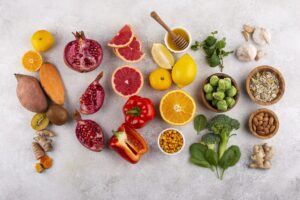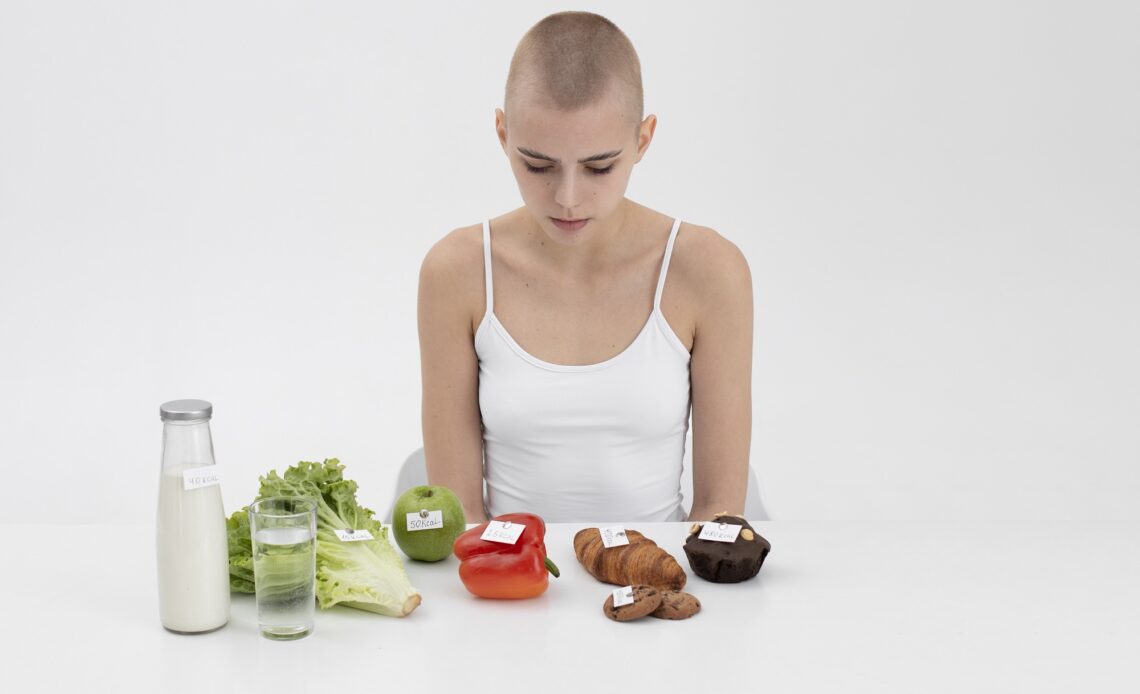Proper nutrition plays a crucial role in the overall well-being and recovery of cancer patients. When you’re undergoing cancer treatment, your body needs extra support to cope with the physical and emotional stress. A well-balanced diet can help you maintain strength, fight infections, and manage treatment side effects more effectively.
Treating cancer, your nutritional needs may change dramatically. You might experience a loss of appetite, changes in taste or smell, or difficulty swallowing. These challenges can make it hard to get the nutrients your body needs. However, by focusing on nutrient-dense foods and working closely with your healthcare team, you can develop a nutrition plan that supports your treatment and recovery.
Maintaining good nutrition during cancer treatment can also help you tolerate treatments better, reduce the risk of complications, and improve your quality of life. It’s important to remember that there’s no one-size-fits-all approach to nutrition for cancer patients. Your specific needs will depend on factors such as the type and stage of cancer, treatment methods, and your overall health status.
Key Nutrients for Cancer Patients
When battling cancer, certain nutrients become especially important for your body’s healing and recovery processes. Here are some key nutrients to focus on:

- Protein: Essential for tissue repair and immune function
- Omega-3 fatty acids: Help reduce inflammation
- Vitamins A, C, and E: Powerful antioxidants that support immune health
- B vitamins: Important for energy production and cell function
- Zinc and Selenium: Minerals that support immune function and healing
It’s crucial to work with your healthcare team to determine the right balance of these nutrients for your specific situation. In some cases, your doctor may recommend supplements to ensure you’re getting adequate amounts of these essential nutrients.
Remember that while these nutrients are important, it’s best to obtain them from whole food sources whenever possible. A varied diet rich in fruits, vegetables, lean proteins, and whole grains can provide a wide range of nutrients to support your health during cancer treatment.
Foods to Boost Immune Function
Strengthening your immune system is crucial during cancer treatment. Certain foods can help boost your body’s natural defenses:
- Citrus fruits (oranges, grapefruits, lemons)
- Berries (strawberries, blueberries, raspberries)
- Leafy greens (spinach, kale, collard greens)
- Garlic and onions
- Yogurt and other probiotic-rich foods
- Green tea
- Mushrooms (shiitake, maitake, reishi)
These foods are rich in vitamins, minerals, and antioxidants that can help support your immune system. Incorporating a variety of these immune-boosting foods into your diet can help your body fight off infections and recover more quickly from treatment-related side effects.
It’s important to note that while these foods can support immune function, they should not be considered a replacement for medical treatment.
Managing Treatment Side Effects through Diet
Cancer treatments often come with side effects that can impact your ability to eat and digest food properly. Here are some dietary strategies to help manage common side effects:

Nausea and Vomiting:
- Eat small, frequent meals throughout the day
- Choose bland, easily digestible foods like crackers, toast, and rice
- Avoid strong odors and greasy foods
- Sip on ginger tea or peppermint tea
Fatigue:
- Focus on nutrient-dense foods to maximize energy intake
- Include lean proteins and complex carbohydrates in each meal
- Stay hydrated with water and electrolyte-rich beverages
Mouth Sores:
- Opt for soft, moist foods that are easy to swallow
- Avoid acidic, spicy, or salty foods that may irritate sores
- Use a straw to bypass painful areas in your mouth
Taste Changes:
- Experiment with different seasonings and marinades
- Try cold or room temperature foods if hot foods taste unpleasant
- Use plastic utensils if you experience a metallic taste
Remember that these are general guidelines, and you should always consult with your healthcare team for personalized advice on managing treatment side effects through diet.
Protein-Rich Foods for Muscle Maintenance
Protein is crucial for maintaining muscle mass and supporting tissue repair during cancer treatment. Here are some excellent protein sources to include in your diet:
- Lean meats (chicken, turkey, lean beef)
- Fish (salmon, tuna, cod)
- Eggs
- Greek yogurt
- Legumes (beans, lentils, chickpeas)
- Tofu and tempeh
- Nuts and seeds
Aim to include a source of protein with each meal and snack. If you’re struggling to eat large portions, consider protein-rich smoothies or shakes as an alternative. These can be easier to consume and can provide a significant amount of protein in a more manageable form.
For those experiencing taste changes or difficulty swallowing, softer protein sources like scrambled eggs, Greek yogurt, or well-cooked legumes may be easier to tolerate. Remember to choose protein sources that align with any dietary restrictions or recommendations provided by your healthcare team.
Antioxidant-Rich Foods to Combat Oxidative Stress
Antioxidants play a crucial role in protecting your cells from damage caused by free radicals, which can be particularly important during cancer treatment. Here are some antioxidant-rich foods to incorporate into your diet:

- Berries (blueberries, strawberries, blackberries)
- Dark leafy greens (spinach, kale, collard greens)
- Colorful vegetables (bell peppers, carrots, sweet potatoes)
- Nuts (walnuts, almonds, pecans)
- Dark chocolate (70% cocoa or higher)
- Green tea
- Pomegranate
- Beans (red beans, pinto beans, black beans)
While these foods are generally beneficial, it’s important to note that some healthcare providers may recommend limiting antioxidant intake during certain cancer treatments. This is because high doses of antioxidants might interfere with the effectiveness of chemotherapy or radiation therapy. Always consult with your oncologist before significantly increasing your antioxidant intake.
Plant-Based Options for Cancer Patients
Plant-based diets have gained attention for their potential health benefits, including for cancer patients. While it’s not necessary to adopt a fully plant-based diet, incorporating more plant-based meals can provide a wide range of nutrients and antioxidants. Here are some plant-based options to consider:
- Whole grains (quinoa, brown rice, oats)
- Legumes (lentils, chickpeas, black beans)
- Nuts and seeds (almonds, chia seeds, flaxseeds)
- Tofu and tempeh
- Plant-based milk alternatives (almond milk, soy milk)
- A variety of colorful fruits and vegetables
Plant-based proteins can be especially beneficial if you’re experiencing taste changes or having difficulty with meat. They’re often easier to digest and can provide a good amount of protein along with fiber and other essential nutrients.
If you’re interested in incorporating more plant-based meals into your diet, start gradually. You might begin with one meatless meal per week and slowly increase from there. Always ensure you’re getting enough protein and other essential nutrients, and consult with a registered dietitian for guidance on balancing your plant-based meals.
Foods to Avoid During Cancer Treatment
While focusing on nutrient-dense foods is important, it’s equally crucial to be aware of foods that may be harmful during cancer treatment. Here are some foods and beverages you might need to avoid or limit:

- Raw or undercooked meats, fish, and eggs (due to risk of foodborne illness)
- Unpasteurized dairy products
- Unwashed fruits and vegetables
- Alcohol (can interfere with treatment and increase risk of certain cancers)
- Processed meats (high in preservatives and may increase cancer risk)
- Sugary foods and beverages (can promote inflammation)
- Excessive caffeine (may interfere with sleep and hydration)
It’s important to note that these recommendations can vary based on your specific treatment and overall health status. Some patients may need to avoid additional foods due to treatment side effects or other health conditions.
Supplements: When Are They Necessary?
While it’s best to get nutrients from whole foods, there may be times during cancer treatment when supplements are necessary. Here are some situations where supplements might be recommended:
- Vitamin D deficiency (common in cancer patients)
- Vitamin B12 deficiency (especially for those on certain medications or with absorption issues)
- Iron deficiency anemia
- Calcium supplementation (particularly for those on certain hormone therapies)
- Omega-3 fatty acids (if unable to consume enough through diet)
It’s crucial to remember that supplements should never be taken without consulting your healthcare team first. Some supplements can interfere with cancer treatments or cause harmful side effects. Your doctor or a registered dietitian can help determine if you need supplements and recommend safe, appropriate options.
When supplements are necessary, choose high-quality products from reputable manufacturers. Look for supplements that have been third-party tested for purity and potency. Always follow the recommended dosage and inform your healthcare team of any supplements you’re taking.
Nutrition Tips for Caregivers of Cancer Patients
As a caregiver, you play a crucial role in supporting the nutritional needs of a cancer patient. Here are some tips to help you in this important task:
- Learn about the patient’s nutritional needs and any dietary restrictions
- Keep a variety of nutritious, easy-to-eat foods on hand
- Offer small, frequent meals rather than large ones
- Be flexible and accommodating to changing tastes and preferences
- Make mealtimes a pleasant, social experience when possible
- Keep a food diary to track intake and identify patterns or issues
- Learn to prepare simple, nutrient-dense meals and snacks
- Stay informed about potential food safety issues for cancer patients
Remember to take care of your own nutritional needs as well. Caregiving can be physically and emotionally demanding, so it’s important to maintain your own health and energy levels.
Don’t hesitate to ask for help or support when needed. Many communities have resources available for caregivers, including support groups and meal delivery services. Your loved one’s healthcare team can also provide guidance and resources to support you in your caregiving role.
Conclusion
Nutrition is a powerful tool in your cancer treatment and recovery journey. By focusing on nutrient-dense foods, staying hydrated, and working closely with your healthcare team, you can support your body’s healing processes and improve your quality of life during and after treatment.
Remember that everyone’s nutritional needs are unique, and what works for one person may not work for another. Be patient with yourself as you navigate changes in appetite, taste, and eating habits. Don’t hesitate to reach out to your healthcare team or a registered dietitian for support and guidance.
By taking an active role in your nutrition, you’re empowering yourself in your fight against cancer. Every healthy meal, every sip of water, every mindful food choice is a step towards better health and well-being. You have the power to nourish your body and support your treatment through the food you eat.


